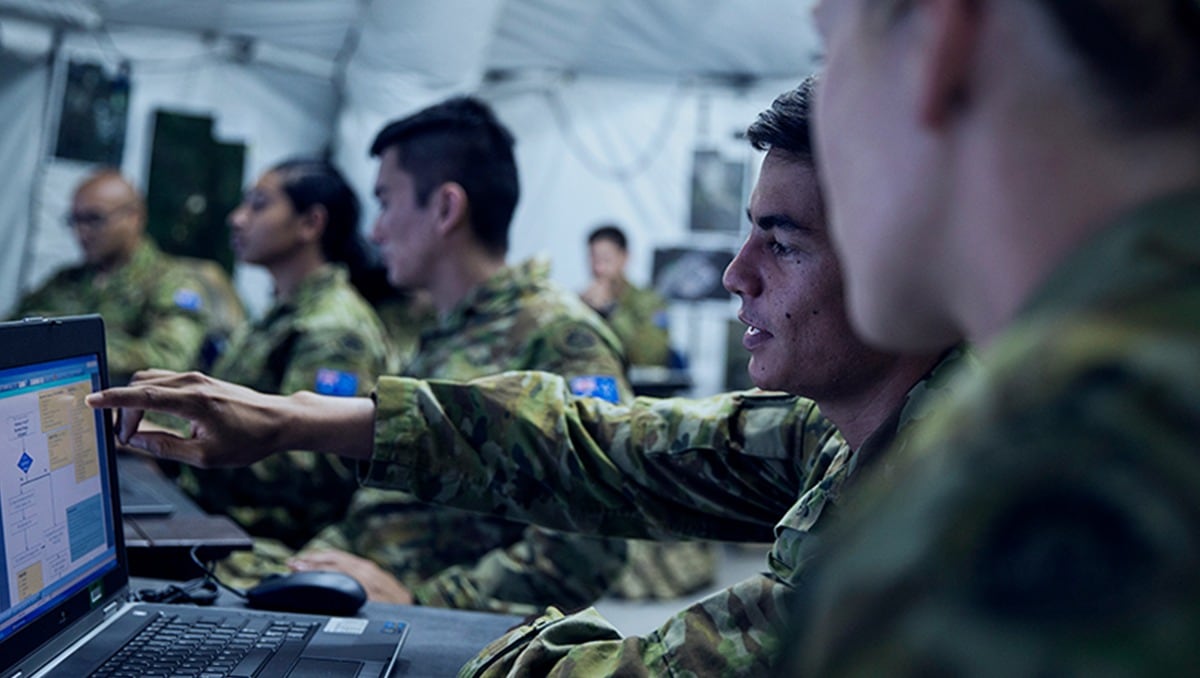There are numerous misconceptions surrounding the hiring of ADF veterans, ranging from their ability to adjust to civilian life to a lack of flexible thinking, but the truth is worlds away from these concerns.
It’s no secret the Australian Defence Force is struggling to find the warm bodies it needs to meet its recruitment targets.
You’re out of free articles for this month
The ADF has a potential pool of approximately 2.8 million Australians in the required 17-to-24-year-old demographic, yet finding the 10,500 individuals it aims to recruit each year seems nigh impossible.
Even if eligible, many Aussie youth just don’t see a career in the military as a viable long-term option. In fact, in some cases, young Australians are staying away from a military career exactly because of a perceived sense that a military background may count against them once they transition back into civilian life.
At the same time, misconceptions do exist, ones that really do hold employers back from hiring veterans into their workforce. And while some veterans do have trouble transitioning back into civilian life, the majority are stable workers who bring a wealth of unique skills and experience with them.
Sadly, the numbers reflect these outdated views, as distorted as they may be. Veterans are in fact more likely to be unemployed compared to their civilian peers – but it doesn’t need to be that way.
“Service doesn’t limit you, it sets you up,” Brodie Moore, CEO of Medilinks Access and former rifleman and a registered nurse, told Defence Connect.
“Veterans can leave the ADF with qualifications, leadership skills and the mindset to make a difference anywhere.”
So it’s time for a bit of myth busting, with both Moore and his colleague, Mick Hartnett, another Army veteran and COO of Medilinks Access, along for the ride.
1. “If you join the military, that’s your only career for life.”
ADF veterans muster out with valuable qualifications and skills that are more than transferable to the civilian workforce. They can thrive in healthcare and emergency services, law enforcement, education and engineering. They can bring broader leadership and critical thinking skills to any role.
2. “Veterans struggle to ‘fit in’ after service.”
As we recently discussed, transitioning out of the military can be tough, and the ADF is no exception. That said, with the proper support, veterans can adapt to a new life and a new role quickly.
“We see every day how quickly veterans adapt when they’re supported,” Hartnett said.
“They don’t just ‘fit in’, they thrive.”
3. “Defence jobs are only for tough guys.”
There’s no denying that military service can be physically demanding, but imagining every veteran as the stereotypical tough guy overlooks the diversity of roles within the defence sphere. Veterans could come from an intelligence background or be cyber specialists or medics.
“There’s no single mould anymore,” Hartnett said.
“Modern defence roles are as much about brains as brawn.”
4. “There’s no flexibility or personal growth in the military.”
ADF members get access to education at a high level, develop leadership skills and are trained to respond calmly in a crisis. These are qualities welcome in any role, in every sector of industry.
5. “Mental health issues make veterans a workplace risk.”
“Veterans are often seen through the lens of trauma, but that’s only one part of the story and not the story for everyone,” Hartnett said.
“Many have faced adversity and come out stronger, and that kind of resilience is a huge asset to any team.”
The trope of veterans suffering from mental health issues is just that – a well-worn trope. Some veterans do struggle with their mental wellbeing as they transition out of the military, but painting every veteran with that brush is deeply unfair.
6. “There’s no support after service.”
There are, in fact, a lot of entities that offer veterans support once they leave the ADF. Some are organic, from the friends they’ve made along the way to the support many veterans find in their families, to the work they do once mustered out. Medilinks Access is just one of them.
“Too many veterans think they have to figure it out alone,” Moore said.
“You don’t. We’ve been where you are – and we built Medilinks to change the system from the inside.”
7. “Hiring a veteran is a gamble.”
As someone who has worked with veterans, there is no gamble involved. The leadership skills and work ethic veterans bring to the table can be invaluable to any team and in any role.
“Veterans bring discipline, creativity and grit,” Moore said.
“They’re not a risk – they’re an asset.”

